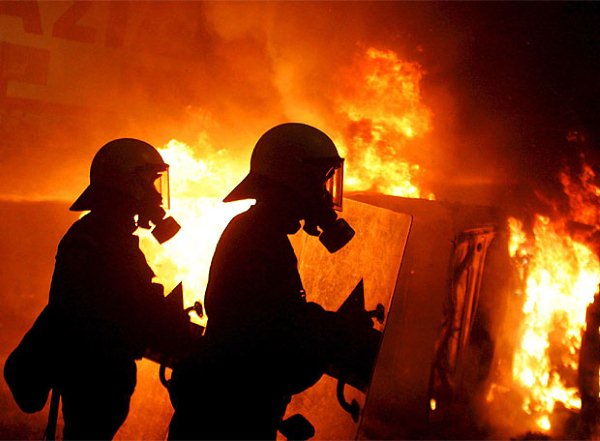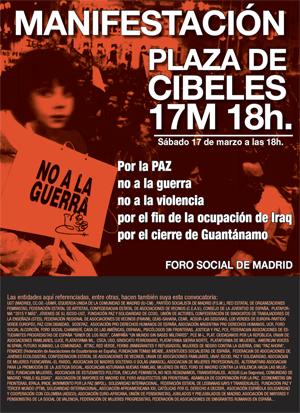Paris. .- French President Nicolas Sarkozy, made today a Cabinet reshuffle that affected the portfolios of Foreign Affairs, Defence and Interior in order to strengthen the executive to the changes experienced by the Arab world. This amendment, the second in the last five months, occurs hours after the foreign minister, Michèle Alliot-Marie, resigned after the controversy caused by their actions before the revolt Tunisian and a controversial last vacation in the country when protests had begun.
The national press believes that by accepting the resignation of the minister and use them to carry out further changes, the President wanted to "make up" the forced departure of Alliot-Marie and silence critics who have intensified in recent weeks against gala diplomacy. The president appointed in his place until now defense minister, Alain Juppe, whose position is in turn owned by Gérard Longuet, leader of the Union for a Popular Movement, Sarkozy's party in the Senate.
For its part, the Ministry of Interior, held until now by Brice Hortefeux, was awarded to former secretary general of the Presidency, Claude Guéant. Sarkozy said in a speech broadcast on radio and television that his goal is "to protect the French" and to reorganize the executive for the country to be better prepared for the consequences of the riots in the Arab countries that it considers "unpredictable" .
"These revolutions are opening a new era in our relations with these countries. (...) They are a historical change and should not be afraid. They bring a wonderful opportunity, because they have done on behalf of values that are ours, the human rights and democracy, "he said in his speech.
In just seven minutes to appear, Sarkozy acknowledged that "all Western states and all French governments that have succeeded have maintained relations with those regimes despite its authoritarian character, because it showed as barriers against religious extremism, fundamentalism and terrorism.
" At 14 months of the presidential elections in full regalia and the French presidency of the G20 and G8, Sarkozy wanted to retake the reins of U.S. foreign policy, beaten by both the opposition and members of the government majority, who have reached described as "amateur." "The first problem is temporary.
Recognize that if our minister has not proposed to president Zine el Abidine Ben Ali police cooperation of France and spent his holiday in Tunisia in full revolution our diplomacy not know the current storm of criticism," he said today a group of diplomats anonymously. In his plea in the newspaper "Libération", argued that there is also a lack, by finding "once again the country is facing great difficulties in integrating its foreign policy in defense of democracy, support for dissidents and transformation regimes.
" In that sense, Sarkozy said that Western countries are now "more than a single goal: to accompany, support and help people who have chosen to be free." "The fate of these movements is still uncertain. If we unite, all the good intentions to succeed them may fall into violence and result in worse than the previous dictatorship.
We know the consequences of such tragedies on uncontrolled migration and terrorism "he said. He urged the other countries to "keep up the circumstances" and asked, first, a European Council meeting to discuss a common strategy before the crisis Libya. It also advocated "refound" the Union for the Mediterranean in order to allow for "all peoples" of both sides to reach "a common destiny." With this appearance before the French, Sarkozy also seeks to revive his role as head of state at a time when his popularity reached historic lows, and closes a weekend marked by the rumor about the "imminent" Alliot-Marie's resignation and uncertainty about the changes that his departure would entail. 


The national press believes that by accepting the resignation of the minister and use them to carry out further changes, the President wanted to "make up" the forced departure of Alliot-Marie and silence critics who have intensified in recent weeks against gala diplomacy. The president appointed in his place until now defense minister, Alain Juppe, whose position is in turn owned by Gérard Longuet, leader of the Union for a Popular Movement, Sarkozy's party in the Senate.
For its part, the Ministry of Interior, held until now by Brice Hortefeux, was awarded to former secretary general of the Presidency, Claude Guéant. Sarkozy said in a speech broadcast on radio and television that his goal is "to protect the French" and to reorganize the executive for the country to be better prepared for the consequences of the riots in the Arab countries that it considers "unpredictable" .
"These revolutions are opening a new era in our relations with these countries. (...) They are a historical change and should not be afraid. They bring a wonderful opportunity, because they have done on behalf of values that are ours, the human rights and democracy, "he said in his speech.
In just seven minutes to appear, Sarkozy acknowledged that "all Western states and all French governments that have succeeded have maintained relations with those regimes despite its authoritarian character, because it showed as barriers against religious extremism, fundamentalism and terrorism.
" At 14 months of the presidential elections in full regalia and the French presidency of the G20 and G8, Sarkozy wanted to retake the reins of U.S. foreign policy, beaten by both the opposition and members of the government majority, who have reached described as "amateur." "The first problem is temporary.
Recognize that if our minister has not proposed to president Zine el Abidine Ben Ali police cooperation of France and spent his holiday in Tunisia in full revolution our diplomacy not know the current storm of criticism," he said today a group of diplomats anonymously. In his plea in the newspaper "Libération", argued that there is also a lack, by finding "once again the country is facing great difficulties in integrating its foreign policy in defense of democracy, support for dissidents and transformation regimes.
" In that sense, Sarkozy said that Western countries are now "more than a single goal: to accompany, support and help people who have chosen to be free." "The fate of these movements is still uncertain. If we unite, all the good intentions to succeed them may fall into violence and result in worse than the previous dictatorship.
We know the consequences of such tragedies on uncontrolled migration and terrorism "he said. He urged the other countries to "keep up the circumstances" and asked, first, a European Council meeting to discuss a common strategy before the crisis Libya. It also advocated "refound" the Union for the Mediterranean in order to allow for "all peoples" of both sides to reach "a common destiny." With this appearance before the French, Sarkozy also seeks to revive his role as head of state at a time when his popularity reached historic lows, and closes a weekend marked by the rumor about the "imminent" Alliot-Marie's resignation and uncertainty about the changes that his departure would entail.


No comments:
Post a Comment